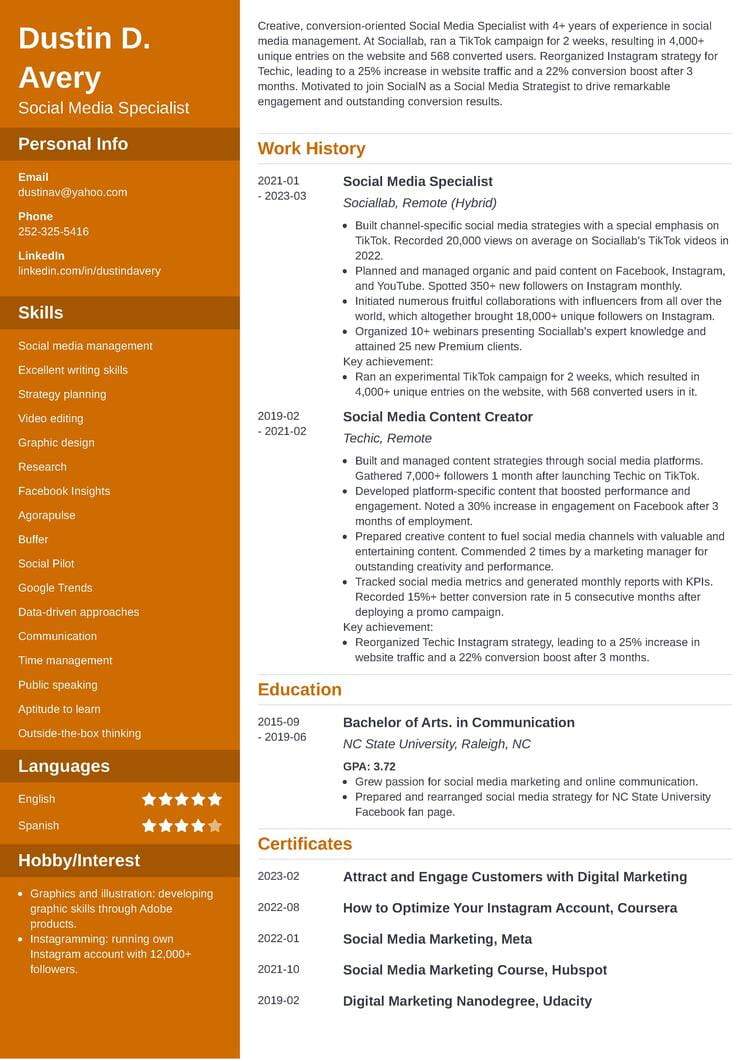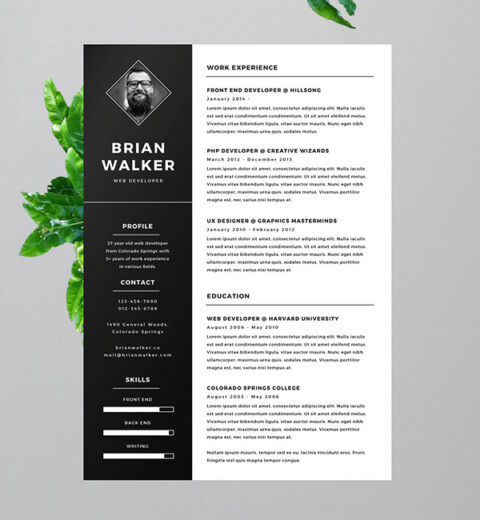When it comes to crafting an impactful resume, the summary section is pivotal. This brief yet potent segment serves as the introduction to your professional narrative, offering hiring managers a glimpse into your qualifications, experiences, and aspirations. In just a few lines, it is your opportunity to captivate your audience, elucidating why you are the ideal candidate for the position at hand. Understanding what to include in this section is essential for any job seeker aiming to stand out in a competitive job market.
A well-formulated summary should encapsulate your core competencies, professional achievements, and value proposition. Consider these fundamental components:
- Professional Title and Experience: Start with your current or desired job title along with a succinct overview of your relevant experience. This immediately positions you within the context of the industry. For example, instead of stating, “I have worked in marketing,” you could assert, “Dynamic Marketing Specialist with over five years of experience driving campaigns and generating leads in the tech sector.”
- Key Skills: Highlight a handful of key skills that distinguish you from other applicants. These may include both technical proficiencies, such as software expertise, and soft skills, like leadership and communication. Tailoring these skills to match the job description can be particularly advantageous.
- Major Achievements: Quantifiable accomplishments are a compelling way to showcase your impact. Use percentages, numbers, or specific outcomes to illustrate what you have achieved. For instance, “Increased sales by 30% within one year by implementing targeted online marketing strategies” paints a vivid picture of your effectiveness.
- Value Proposition: Articulate what sets you apart. This is your chance to communicate your unique selling points. Reflect on how your experiences have equipped you with a diverse perspective or innovative thinking that would benefit the organization.
- Career Goals: Bridging your past with your future, it’s beneficial to mention your career aspirations. This gives insight into your drive and how your ambitions align with the potential employer’s goals. A sentence like, “Eager to leverage my analytical skills in a data-driven environment to enhance product development” exhibits enthusiasm for growth.
Formatting your summary effectively is equally critical. Utilizing clear and concise language will ensure that your points are understood at a glance. Aim for five to seven sentences, keeping brevity without sacrificing substance. Using bullet points can also enhance readability, particularly for summaries that include several key achievements or skills.
Pedagogically, it is essential to recognize the power of keywords in your summary. Many employers utilize Applicant Tracking Systems (ATS) to filter resumes based on keywords from the job description. By incorporating these terms wisely—without compromising the natural flow—you increase the chances of your resume being seen by human eyes. Therefore, consider the primary skills and qualifications that the job posting emphasizes, and intertwine them judiciously into your summary.
Moreover, personalization can significantly enhance the efficacy of your summary. Research the company’s culture and values, and embrace this knowledge when drafting your summary. For instance, if the organization values innovation, you might elaborate on experiences that underscore your creative problem-solving abilities. This subtle customization demonstrates genuine interest in the role and distinguishes you from generic applicants.
Another frequently overlooked aspect is the tone of your summary. Maintaining a professional yet personable tone is paramount. This conveys confidence without arrogance. Instead of saying, “I am the best fit for this role,” consider, “I bring a unique blend of skills and experiences that equip me to contribute effectively to your team.” This slight adjustment suggests self-assurance while remaining humble.
Examples of effective summaries can provide valuable insight. Consider the following scenarios:
- For a recent graduate: “Motivated Business Administration graduate with a keen interest in consumer behavior. Adept at utilizing data analytics to inform marketing strategies, demonstrated during a six-month internship where I improved customer engagement through targeted campaigns. Looking forward to applying my skills in a vibrant marketing team.”
- For a seasoned professional: “Accomplished Project Manager with over a decade of experience leading cross-functional teams in the technology sector. Successfully executed projects exceeding $5 million in revenue, while fostering collaborative environments. Passionate about driving efficiencies and delivering high-quality results that exceed client expectations. Seeking to leverage my project management expertise to contribute to a forward-thinking organization.”
In summary, the summary section of a resume is a microcosm of one’s professional life. It demands a judicious combination of clarity, originality, and relevance, allowing candidates to present themselves as compelling and viable choices for employment. By focusing on articulating key experiences, skills, and aspirations, candidates can create a summary that not only captures attention but also establishes a strong foundation for the subsequent sections of their resume. Crafting this section with care can ultimately mean the difference between being passed over or landing an interview. As the job market continues to evolve, a powerful resume summary remains a timeless necessity for every job seeker aiming to secure the position they desire.




